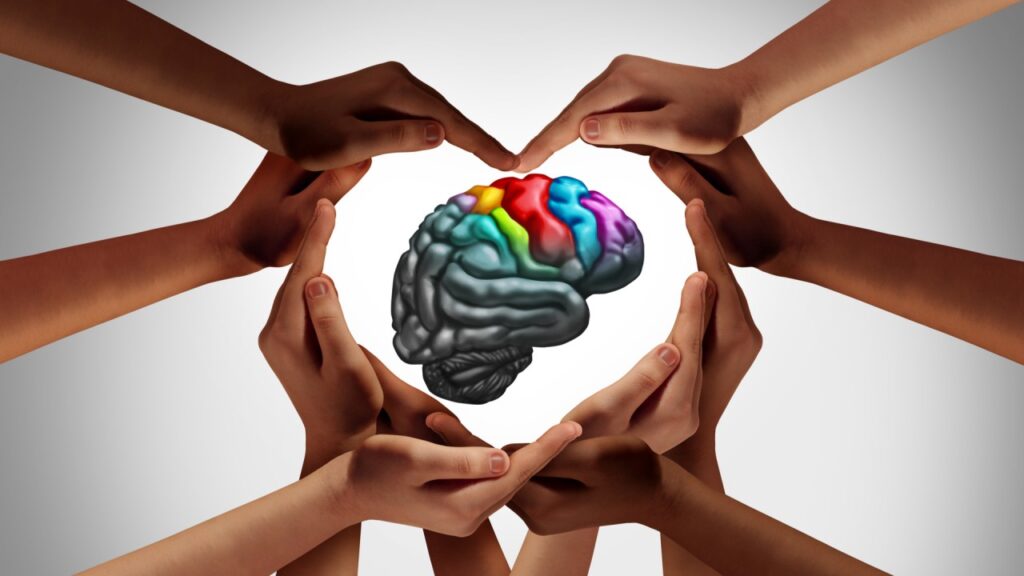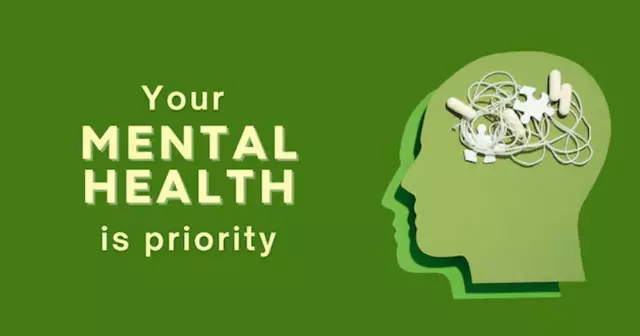
Mental health has become a global priority in 2025, with awareness campaigns, technological innovations, and improved health services having a significant impact.
Mental health challenges continue to rise, societies worldwide are adopting new approaches to effectively address these issues. Governments, organizations, and individuals work together to break stigmas, provide better access to resources, and integrate mental well-being into daily life.
With the rise of digital solutions, AI-driven therapy, and holistic treatment, the landscape of mental health awareness is evolving rapidly. Explores the latest trends, role of technology, importance of mental health education, and how health services are transforming to improve mental well-being.
The State of Mental Health Awareness in 2025
Mental health awareness has undergone a massive shift over the past decade. The recognition of mental health as a critical aspect of overall well-being has led to increased investments in health services. Governments and the private sector are implementing policies that make mental healthcare more accessible and affordable.
Key Developments in Mental Health Awareness
A rise in global campaigns advocating for mental health education.
More companies are integrating mental well-being programs for employees.
Increased funding for mental health research and technological advancements.
Integration of health services into community programs to reach more individuals.
Emerging Trends in Mental Health Awareness
1. AI-Powered Mental Health Support
Artificial intelligence is revolutionizing mental health services, offering chatbots, virtual therapists, and AI-driven apps that provide real-time mental health support. These tools make therapy more accessible and affordable.
2. Workplace Mental Health Programs
Employers prioritize mental health by offering wellness programs, flexible work hours, and employee assistance programs (EAPs). These initiatives help to reduce workplace stress and improve productivity.
3. Social Media’s Positive Impact
While social media has been criticized for its negative effects on mental health, in 2025, it was also a platform for awareness and support. Online communities, influencers, and mental health advocates use social media to break stigmas and to provide valuable resources.
4. Personalized Therapy Options
Therapy is no longer a one-size-fits-all approach. Digital counseling, teletherapy, and virtual reality therapy are making mental healthcare more customized to individual needs.
5. Mindfulness & Holistic Healing
Alternative therapies, including meditation, yoga, and breathwork are gaining traction. People embrace these natural methods to enhance their mental health and overall wellbeing.
The Role of Technology in Mental Health Advocacy
Technology is a game-changer in mental health awareness. Health services are now leveraging digital tools to reach more individuals and to provide faster and more effective support.

How Technology is Transforming Mental Health Care
Mobile Apps: Mental health tracking apps help individuals monitor their emotional well-being.
Wearable Devices: Smartwatches and fitness bands now have mental health features, such as stress tracking and meditation reminders.
Virtual Reality (VR) Therapy: VR-based therapy sessions have become a popular treatment for anxiety and PTSD.
Online Support Groups: Virtual communities offer safe spaces for individuals to discuss their struggles and seek advice.
Mental Health in Schools and Universities
Educational institutions recognize the importance of integrating mental health education into their curricula. Schools and universities are implementing strategies to help students manage their stress and emotional challenges.
Key Mental Health Initiatives in Education
On-campus counseling services that provide students with mental health support.
Peer support groups encourage open conversations regarding mental well-being.
Stress management programs that teach mindfulness and relaxation techniques.
Collaboration between schools and health services to provide professional assistance.
Corporate Responsibility and Workplace Mental Health
Businesses play a crucial role in the promotion of mental health. Many companies now understand that a mentally healthy workforce is productive. Health services are integrated into workplace policies to support employees.
Strategies for Workplace Mental Health Improvement
Flexible Work Schedules: Allowing employees to balance work and personal life effectively.
Mental Health Days: Encouraging employees to take time off for mental well-being.
Training for Managers: Helping leaders understand and support their teams’ mental health needs.
In-House Health Services: Providing access to counseling and therapy within the workplace.
Community and Social Support for Mental Health
Communities also play an essential role in mental health advocacy. Grassroot organizations and local health services offer workshops, events, and peer support groups to create a more supportive environment for individuals struggling with mental health challenges.
How Communities Are Making a Difference
Hosting mental health awareness events and workshops.
Partnering with health services to provide accessible mental health care.
Encouraging open discussions to break stigmas and normalize seeking help.
Providing support groups for individuals with shared experiences.
The Future of Mental Health Awareness
The future of mental health awareness is promising with continuous advancements in health services, research, and technology. By 2030, experts can predict even more innovative solutions to effectively address mental health challenges.
Predictions for the Next Decade
AI-driven therapies are becoming increasingly sophisticated and widely used.
Health services will be fully integrated into all health care systems.
The public and private sectors invest more in mental health initiatives.
Mental health education is a core subject of schools worldwide.

Mental health awareness in 2025 has reached new heights thanks to technological advancements, corporate initiatives, educational reforms, and stronger community support. The growing recognition of mental health’s importance is leading to better health services, breaking stigmas, and prioritizing mental well-being.
